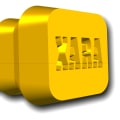Online payment services have become an increasingly important part of modern life. Whether you're a business or an individual, the ability to pay for goods and services quickly and securely is essential. In this comprehensive overview, we'll discuss the different types of online payment services, how they work, and their advantages and disadvantages. We'll also explore how to choose the right payment service for your needs.
So let's dive in and explore the world of online payment services!Online Payment Services provide an efficient, secure, and cost-effective way to transfer money from one person or business to another. They are a convenient and secure alternative to cash, check, or money order payments. There are many different types of online payment services available, and each has its own advantages and disadvantages. To help you decide which type of service is best for your needs, we'll look at the different types of online payment services, how to set up an account, and how to make safe and secure online payments. One of the most common types of online payment services are credit cards.
Credit cards allow users to make purchases online without having to enter their financial information every time. Credit card payments are usually processed quickly and securely, although there may be fees associated with using them. It's important to ensure that the website you're purchasing from is secure, as it could be vulnerable to fraud. Debit cards are another popular type of online payment service. Debit cards are linked directly to a user's bank account and can be used to pay for purchases online.
However, it's important to note that debit cards do not provide the same level of fraud protection as credit cards. In addition, there may be fees associated with using debit cards for online payments.
E-wallets
are becoming increasingly popular as an online payment service. E-wallets are digital wallets that allow users to store their financial information in one place. This makes it easier and faster to make purchases online, as users don't have to enter their information every time they make a purchase.E-wallets can also provide extra layers of security for online payments, although there may be fees associated with using them. Bank transfers are another option for making online payments. This type of service allows users to transfer funds from one bank account to another. Bank transfers offer a convenient way to pay for items online, but they usually take longer to process than other methods of payment. In addition, there may be fees associated with using bank transfers for online payments.
Digital wallets
are a type of online payment service that allows users to store their financial information in one place.Digital wallets are becoming increasingly popular due to their convenience and ability to provide extra layers of security when making purchases online. However, it's important to note that digital wallets do not provide the same level of fraud protection as credit cards or e-wallets. In addition, there may be fees associated with using digital wallets for online payments. When using any type of online payment service, it's important to take steps to ensure that your financial information is secure. Make sure that you only use websites that are secure and have up-to-date security measures in place.
Additionally, never share your financial information with anyone else unless you know and trust them. It's also important to take the time to review the fees associated with using different types of payment services before committing to one. If you experience any problems when making payments online, it's important to contact the customer service department of the payment provider immediately. They should be able to help you troubleshoot any issues that you may be having. Additionally, many providers offer dispute resolution services if you feel that you've been charged incorrectly. In summary, online payment services provide an efficient, secure, and cost-effective way to transfer money from one person or business to another.
There are many different types of services available, including credit cards, debit cards, e-wallets, bank transfers, and digital wallets. It's important to take steps to ensure that your financial information is secure when using any type of online payment service. Additionally, it's important to review the fees associated with using different types of payment services before committing to one.
Security Measures
Online payment services are designed with security as a top priority. Payment providers use a variety of measures to keep your information and funds secure.These may include two-factor authentication, encryption, fraud detection tools, and secure payment processing.
Two-factor authentication
: Most payment providers offer two-factor authentication as an extra layer of security. This means that in addition to entering your password, you will also need to enter a code sent to your mobile device or email address. This extra step helps ensure that no one else can access your account.Encryption
: Payment providers use encryption to secure the data you send when making a transaction. This means that any information you send is scrambled and only readable by the payment provider.This helps keep your information safe from hackers.
Fraud detection tools
: Payment providers use sophisticated fraud detection tools to identify suspicious activity. These tools help protect both customers and businesses from potential fraud and identity theft.Secure payment processing
: Payment providers use secure processing systems to ensure the safety of your funds. This means that your payment is transferred safely and securely, without any risk of being intercepted by a third party.Fees and Additional Costs
Using online payment services comes with certain fees and costs associated with them. While the exact fees vary depending on the payment service, there are some common fees to be aware of.Transaction FeesMost payment services charge a fee for each transaction. This fee is usually a percentage of the total amount of the transaction. For example, a payment service might charge a 2% transaction fee for each purchase.
Monthly Fees
Many payment services also charge a monthly fee, which can range from $5 to $30 per month, depending on the features and services you need.Additional FeesIn addition to the transaction and monthly fees, some payment services may charge additional fees for certain services, such as international transfers or currency exchange. Be sure to read the fine print of your payment service to understand any additional fees that may apply.
Setting up an Account
Setting up an account with an online payment service provider is relatively straightforward. Generally, you'll just need to provide your contact information, set a password and confirm your email address. You may also need to complete identity verification, depending on the service and the amount of money you plan to transfer.To get started, simply look for the “sign up” or “register” option on the payment service provider's website. Once you’ve completed the registration form and verified your email address, you can link your account to a bank account or credit card. You may be asked to provide additional information to verify your identity before you can use the payment service. Once you’ve completed the registration process, you can use the online payment service to send or receive payments. Be sure to read the terms and conditions of the service, including any fees that may be associated with using it.
Types of Online Payment Services
When it comes to online payment services, there are a variety of options available. The type of service you choose will depend on the needs of the person or business transferring money. Common types of online payment services include: Credit Cards: Credit cards are one of the most popular payment methods for online transactions. They allow users to pay for goods and services quickly and securely.Credit card payments are generally processed instantly, meaning that money can be transferred quickly and efficiently.
Debit Cards:
Debit cards are similar to credit cards in that they are used to make online purchases. However, debit cards are linked to a bank account, so the money is taken directly from the account when the payment is processed. This means that the user must have enough money in their account to cover the transaction.E-Wallets:
E-wallets are digital wallets that allow users to store funds and make payments without having to enter credit card information each time. They can be connected to a bank account or credit card, but they also provide an extra layer of security when making payments online.Bank Transfers:
Bank transfers are a secure and efficient way to transfer funds from one person or business to another.Bank transfers are typically processed within one or two business days, and they can be used to transfer large amounts of money with relative ease.
Cryptocurrency:
Cryptocurrency is a form of digital currency that can be used for online payments. It is decentralized, meaning that it is not backed by any government or central bank. Cryptocurrency payments are usually processed instantly, but there is a small fee associated with each transaction. Online payment services provide an efficient, secure, and cost-effective way to transfer money from one person or business to another. There are a variety of types of online payment services available, each with different fees and security measures.Setting up an account is relatively simple and does not require much information. When using online payment services, it is important to take certain security measures such as using a secure connection and avoiding online scams. In addition, there may be additional costs associated with using online payment services. In conclusion, online payment services are a convenient and secure way to transfer money, but it is important to be aware of the potential fees and security risks involved. To ensure safe online payments, it is essential to use a secure connection, be aware of potential scams, and be aware of any additional costs associated with the service.
With these precautions in place, online payment services can provide a safe and cost-effective way to transfer funds.











Leave Message